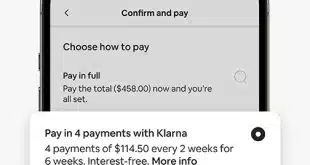More than three years in the making, so-called account-level processing is moving closer to reality at Visa USA. The new process affecting Visa-branded consumer cards will allow a credit cardholder to keep the same account number even if his issuer upgrades his card. Visa claims ALP will allow smoother transitions to new cards for cardholders, and will let merchants, in partnership with issuers, design more effective rewards programs. Account-level processing will require merchant acquirers and issuers to make some operational changes in handling transactions from Visa's four major consumer credit card product categories?Traditional, Traditional Rewards, Signature and the new Signature Preferred. The key change is the switch from managing transactions through the six-digit bank identification number (BIN) within a card's 16-digit number and instead using the full account number. As part of that, Visa will require that acquirers by October be able to receive a new field code, dubbed 62.23, in the authorization message and populate it in the clearing and settlement message with an alpha (letter) character identifying the card-product, according to Jim McCarthy, senior vice president of consumer credit products. With that code, the correct interchange, chargeback rights, and other items such as loyalty points accrued in a given transaction can be determined. The old BIN-based system required issuers to give new account numbers to cardholders every time their credit card product changed. For instance, a young adult might start out with a secured or subprime card with a low credit limit, but his issuer would usually upgrade him to standard, premium, or rewards card as his income and creditworthiness rose. Each upgrade requires a new card, a situation that “creates unnatural attrition events,” McCarthy tells Digital Transactions News. The BIN-based system's shortcomings became especially evident as more cardholders signed up for recurring bill payments or gave their numbers to online merchants for use in future payments. Another advantage of ALP is that it allows issuers to design more targeted rewards programs instead of offering the same perks to every cardholder within a BIN group that a rewards or cobranded card program uses. Issuers today often waste many of their marketing dollars pitching rewards to consumers who aren't interested. The new system could let a merchant working with a Visa issuer design transaction-based rewards for the most receptive cardholders, Visa claims. Visa's VisaNet network is capable of handling the new code today, but it's still optional for acquirers for the next four months. Work on account-level processing began in 2004 when Visa concluded it wanted to move beyond the limitations of BIN-based transaction processing, McCarthy says. The network itself was ready for ALP on Traditional and Traditional Rewards cards in 2005, but the switchover involved considerable work with issuers and third parties such as processors and enhancement providers, some of which had built revenue forecasts based on the old system. “We had to work with those vendors to re-architect their systems,” says McCarthy. Merchants must install new or revised software to apply the different processing parameters for each card product. How much of an expense or burden that will be for acquirers isn't clear, though some contacted by Digital Transactions News didn't seem overly concerned. “At this point I don't think it's going to be a huge a issue, but as we get closer [to October], we'll fully vet it to really drill down to the issues,” says Andrew Rueff, senior vice president of corporate development at Dallas-based merchant processor TransFirst Holdings Inc. Adds Paul R. Garcia, chief executive officer of Atlanta-based Global Payments Inc.: “My guess is it's one amongst many changes you have to make to accommodate Visa-MasterCard regs.” Visa says it plans of extend account-level processing to non-consumer cards in the future. In commercial card transactions, the new system will prompt merchants for so-called Level 2 and Level 3 data?added information about the merchant beyond what's needed for a standard authorization?and thereby qualify them for lower interchange rates, Visa says. MasterCard Worldwide also is altering its processing system to let cardholders retain a single account number even if their card product changes.
Check Also
Japanese Fintech PayPay Looks to Enter the U.S. Via a Visa Partnership And an IPO
Japanese fintech PayPay Corp. is preparing a push into the United States through a partnership …





